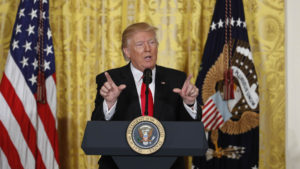Our friend Robert Talisse has an article up at 3 AM Magazine on the concept of “fake news.” TL;DR: it’s impossible to define “fake news” because our current discourse is so toxic that it will furnish no neutral examples:
Thus we confront what philosophers call the paradox of analysis.  Any definitional endeavor must begin from presumed instances of the phenomenon that is to be defined.  In many philosophical contexts, the paradox’s “I know it when I see it†circularity is manageable because philosophical debates often proceed against wider background agreements.  For example, philosophers who disagree sharply about justice nonetheless agree that antebellum slavery is an exemplary instance of severe injustice.  Similarly, metaphysical disputes over the nature of physical objects typically presume that tables and chairs are among such entities.
Things are far more troubled with fake news.  In order to devise a nuanced definition that is also politically impartial, we must identify cases of fake news that can be presumed to be noncontroversial among otherwise divided citizens.  I doubt that there are such cases.
I think this is correct, but the real problem is another one. Happily, it’s one that Rob (and Scott) have already identified: discussions of terms such as “fake news,” inevitably suffer from the problem of “weaponized metalanguage.” This is where the tools of argument analysis are crafted as weapons in arguments. The problem in this particular case is particularly acute because “Fake News,” like “gaslighting” and “whataboutism” are somewhat new entries in our metavocabulary. Perhaps we had high hopes for them; their novelty is meant to avoid worn-out terms like “propaganda” or “lying” or “tu quoque.” That they immediately fail at their appointed task shouldn’t be particularly surprising.
